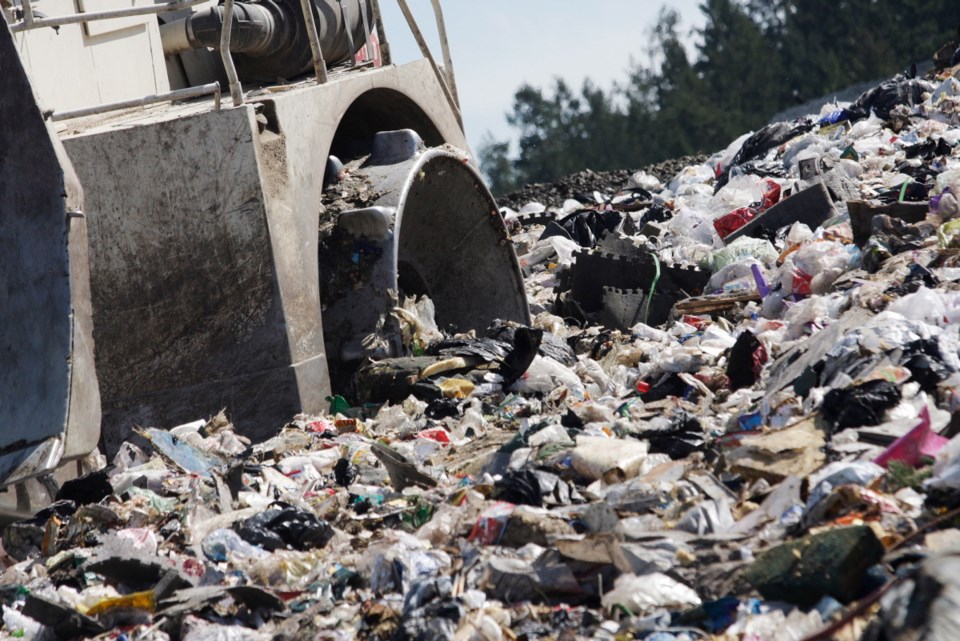Arguing they were caught between a rock and a hard place, local politicians put off making a decision on whether to landfill collected household food scraps or ship them to Richmond for processing.
Capital Regional District staff are recommending the region award a contract for hauling and processing food scraps between April 2014 and December 2015 to Emterra Environmental for $4.79 million.
But some directors want more information, including an analysis of net greenhouse gas emissions comparing shipment of the food scraps versus landfilling.
“The last thing I want to do is put things into Hartland in the long term. I don’t think it’s the most efficient way to go. But I need that comparison,” said Saanich Coun. Vic Derman, a member of the environmental services committee that considered the recommendation on Wednesday.
The Emterra contract is viewed as a temporary measure to buy time until a permanent local solution can be found to process tonnes of food scraps separated from garbage by residents in Victoria, Oak Bay, View Royal and Esquimalt.
Staff say if the agreement with Emterra is not signed, the region would have to consider postponing its planned 2015 ban and landfill the food scraps.
The CRD has had little in the way of options for processing food scraps since the suspension of the Foundation Organics composting plant’s licence, said CRD environmental services committee chairman Nils Jensen.
Foundation Organics — the only commercial composting facility in CRD boundaries — was to accept food scraps collected by local municipalities. But the CRD pulled Foundation’s licence because of odour and litter complaints.
The $4.79-million Emterra contract would be about $1.3 million more than had been budgeted. CRD staff are recommending raising the tipping fee for kitchen scraps effective 2015 to $140 a tonne from the current $87, which includes a $20 diversion incentive. That would cover about $1 million of the additional costs for 2015. They suggest dipping into the landfill’s sustainability reserve for the anticipated $300,000 in extra costs this year.
But some CRD directors objected to the reserve being used to subsidize some municipalities’ food scrap programs and said that $300,000 should be paid back.
“If we’re going to start using the sustainability [fund] for short-term coverage of other municipalities’ operations then the sustainability fund needs to be paid back,” said Saanich Coun. Judy Brownoff.
That didn’t sit well with Esquimalt Mayor Barb Desjardins, who wondered about the plan beyond 2015 and said she’s going to have to have discussions with her engineer about alternatives.
“The CRD is really losing confidence, my confidence, my municipality’s confidence in being able to come up with a solution,” Desjardins said.
“When I hear the fact that I may have to pay back to a fund, this is just not acceptable.”
The CRD proposal does not include food scraps from Saanich, which will haul organics to Fisher Road Recycling in Cobble Hill for the next five years.
Several directors said a local, long-term regional solution has to be found for food scraps but that is difficult with municipalities like Saanich going off on their own.
Brownoff and Derman said Saanich had little choice.
“Saanich doesn’t have control over what goes into the landfill. Essentially, this agency [CRD] said we are going to ban kitchen scraps from the landfill and then municipalities went about preparing to deal with that ban,” Derman said.
“Unfortunately, in the end we took the approach of banning and then trying to find a solution.”
The committee will re-examine the issue next month.



